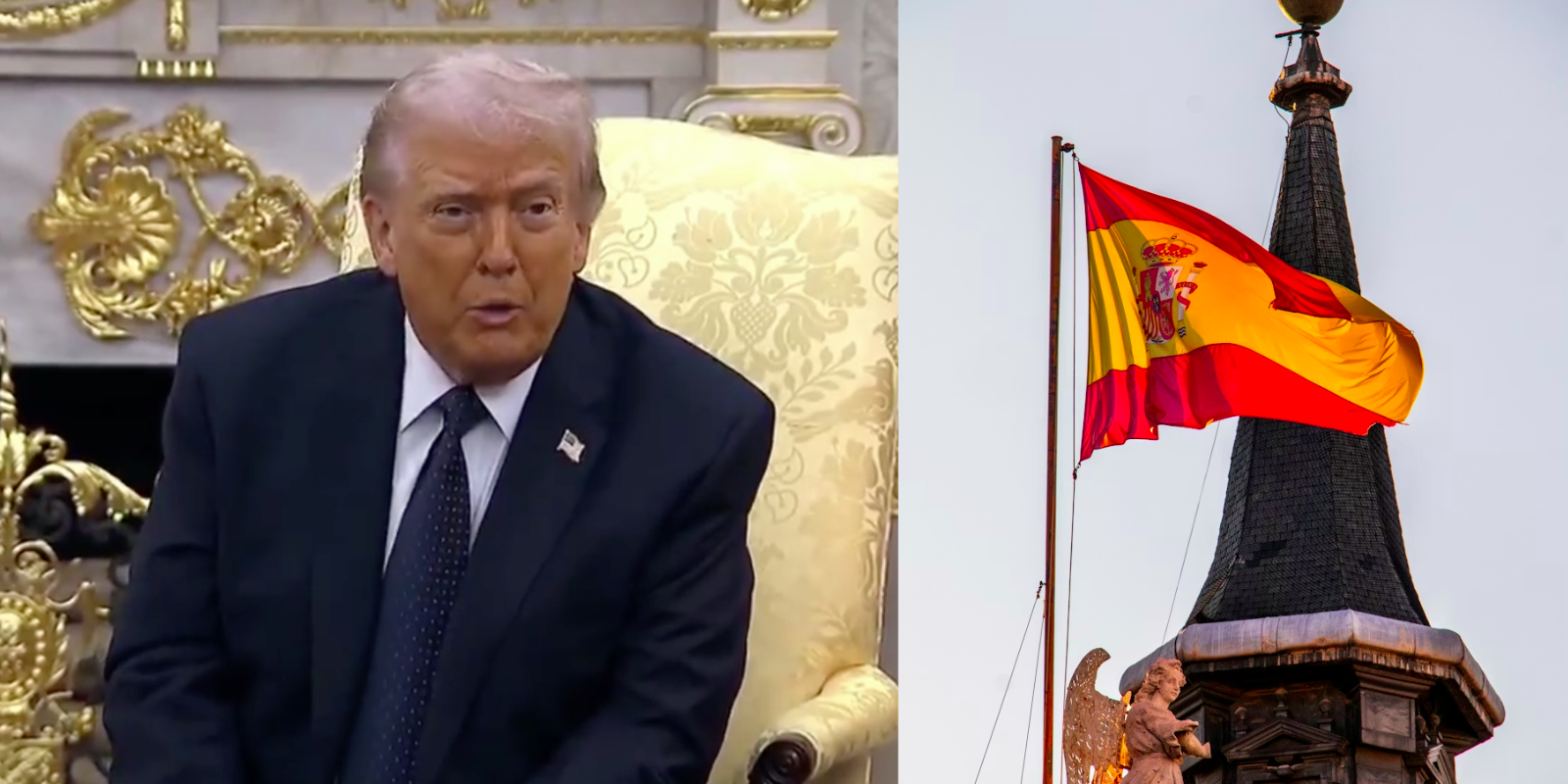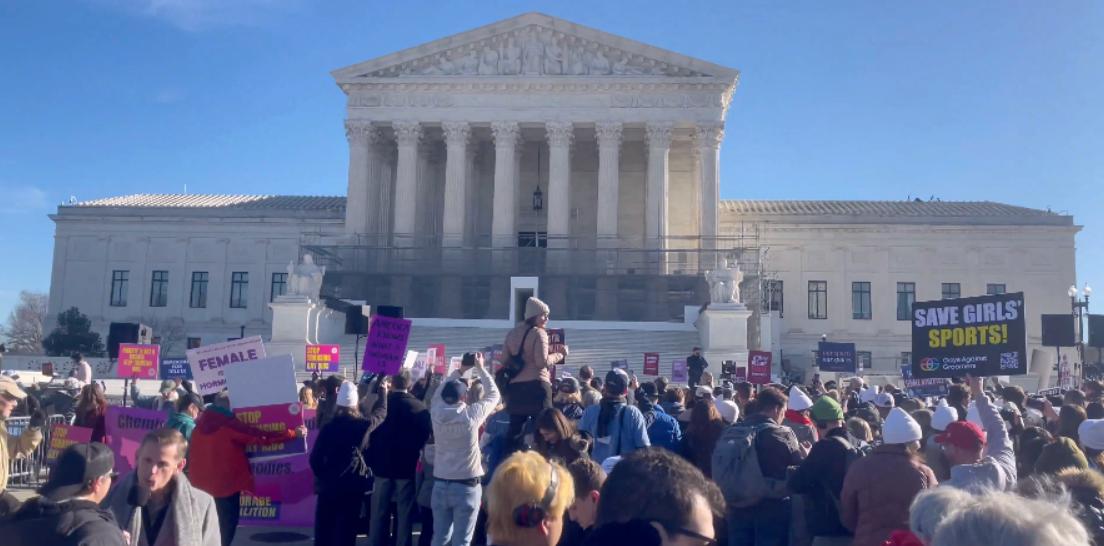Last month Michael Lind released his excoriating critique of Western elites, where he argued that “the changing class composition of center-left parties” is “the single most important factor explaining the rise of populism in the US and Western Europe.” The white working-class is now largely allied with Trump, whereas “the Democratic Party in the US is now a party of the affluent native white metropolitan elite, allied with immigrants and native minorities brought together by noneconomic identity politics rather than by class politics.”
The new “woke” elite, by contrast, “pursues the working class after the workday has ended… denouncing the racy, prole-oriented tabloid Internet as ‘fake news,’ to be censored by the guardians of neoliberal orthodoxy and propriety.”
The working-class vote for Trump was based, Lind insists, on “legitimate grievances.” It was a “defensive reaction” against neoliberal elites who have “deprived much of the working class of effective voice or agency in government, the economy, and culture.”
How have elites smothered the working-class’s voice in the culture? In the post-war arrangement, Lind explains, the elites, while “distant and snobbish,” were “thankfully indifferent” to working class ways of thinking, speaking and living. The new “woke” elite, by contrast, “pursues the working class after the workday has ended… denouncing the racy, prole-oriented tabloid Internet as ‘fake news,’ to be censored by the guardians of neoliberal orthodoxy and propriety.”
As though to illustrate his point, late last month (just as Lind’s book dropped), the Sanders campaign announced an endorsement from Joe Rogan. The reaction from much of the left—i.e. those for whom Vox speaks—brings into relief the “profound contempt” Lind describes that elites harbor for the cultural views of the working-class.
And it’s because of this contempt that Rogan’s fans should vote for Donald Trump.
[caption id="attachment_181554" align="alignnone" width="1920"] Vox's Zach Beauchamp, Dylan Matthews, and Matthew Yglesias.[/caption]
Vox's Zach Beauchamp, Dylan Matthews, and Matthew Yglesias.[/caption]
VOX ASKS, ‘ARE ROGAN FANS BENEATH CONTEMPT, OR ONLY ALMOST SO?’
Zach Beauchamp, Dylan Mathews, and Mathew Yglesias each published ‘explainers’ of the controversy for Vox.
Both sides agree that Rogan holds odious views, and that actual dialogue with Rogan fans is not possible.
In their telling, the left’s reaction largely broke up into two camps. One group urging the left to put more importance on gay and trans issues are furious with the Sanders campaign and saw accepting the endorsement as immoral. The other saw this alliance as a strategic concession to gain back the White House. Yglesias argued that “turning down Rogan doesn’t make sense.” Beauchamp and Mathews sought to explain where the opposing sides are coming from, though they both lean in favor of turning Rogan down.
As Zach Beauchamp explains, the debate is between those in favor of an alliance with “people with social views progressives find odious,” and those who think that “some people’s views are so odious that they can never be acceptable political partners.”
Both sides agree that Rogan holds odious views, and that actual dialogue with Rogan fans is not possible.
Those views are supposedly expressed in Rogan’s “history of offensive comments, especially about transgender people.” Which comments? Critics consistently point to Rogan’s 2013 remarks concerning transgender MMA fighter Fallon Fox. The most cited offense is Rogan calling Fox a “f****** man.”
Rogan made these remarks because he’s opposed to women getting beaten up by ex-men in an octagon. As he explained when responding to the controversy, he’s even OK with that if the women fighting know they’re fighting a trans woman. (Fox hadn’t disclosed that she used to be a man). Beauchamp quotes Rogan saying Fox was “beating the f*** out of these women … manhandling these women,” but then ‘explains’ that Rogan’s words “contain all the classic tropes of transphobia.”
Those criticizing Sanders for celebrating Rogan’s endorsement are “broadly speaking … correct,” Beauchamp argues, because Rogan and his fans are “animated primarily by their resentment of marginalized groups.” (Notice that this leaves no room for the fact that Rogan is actually animated primarily by his desire to protect women from physical harm).
All three analyses agree: neither side to the dispute doubts that Rogan fans are bigots, and neither side thinks it’s possible to take them seriously in a dialogue over moral and cultural issues.
Many women, including many feminists, share Rogan’s reluctance to let trans women compete in women’s sports—especially ones involving physical combat. But my concern here is not to argue for one position against others; it’s to expose how all three Vox authors contemptuously dismiss Rogan and his fans without engaging them in dialogue over the moral issues involved. They don’t even think it worth their time to offer arguments for the position they favor!
And if this contempt is as widely shared amongst Democrats as these Vox articles suggest, Rogan fans should reconsider their allegiance to this party.
According to all three articles, both camps are in agreement that Rogan’s remarks make him a “transphobe.” This assumption is taken at face value by all three commentators. Beyond Rogan’s words, however, no reason is given why it’s true.
The debate, as Mathews explains it, is between those who are and those who aren’t willing to see “transphobia being treated as marginal and forgivable.” The alliance-seekers are morally lax in that they’re willing “to coddle and amplify bigots” for political expediency, but they agree that in courting Rogan fans they’re making “accommodations with bigotry.” Like Beauchamp, Mathews favors the moral purity of those who’d place anyone who for whatever reason doesn’t assent to ex-men beating up women in an octagon “outside the realm of acceptable political discourse.” (Those like Roxane Gay, who got 19,000 likes for tweeting, “Bigotry is not a perspective that deserves engagement beyond condemnation”).
All three analyses agree: neither side to the dispute doubts that Rogan fans are bigots, and neither side thinks it’s possible to take them seriously in a dialogue over moral and cultural issues.
[caption id="attachment_181552" align="alignnone" width="1920"] Pride flag.[/caption]
Pride flag.[/caption]
WHY THEY CALL US “-PHOBES”
Calling Rogan fans “transphobes” shuts out the possibility of dialogue with them on the issue of how to balance transgender rights with the need to protect women from undue physical harm.
As Lind explains:
“The term ‘-phobe’ for political opponents has been added to the arsenal of obloquy deployed by technocratic neoliberals against those who disagree with them. The coinage of the term ‘homophobia’ by the psychologist George Weinberg in the 1970s has been followed by a proliferation of pseudoclinical terms in which those who hold viewpoints at variance with the left-libertarian social consensus of the transatlantic ruling class are understood to suffer from ‘phobias’ of various kinds. … The purpose of describing political adversaries as ‘-phobes’ is to medicalize politics and treat different viewpoints as evidence of mental and emotional disorders.”
Speaking for both leftist factions, our Vox authors “medicalize” Rogan by explaining his views on trans women in women’s combat sports as a function of “transphobia.” By doing so they don’t have to deal with why Rogan holds his view – to protect women from physical harm. Our Vox authors exemplify Lind’s description: elites ascribe the views they disfavor “to the irrational impulses of maladjusted voters” to avoid “treating specific grievances of those voters as legitimate.”
Sanders touting Rogan’s endorsement is only of concern to the Vox crew because, to their surprise and chagrin, Rogan is “astonishingly popular” (Beauchamp). Devin Gordon explains why in his piece for the Atlantic, “Why is Joe Rogan So Popular.” Rogan, Gordon argues, appeals to “an audience that the cultural elite hold in particular contempt … Joe loves these guys, and his affection has none of the condescension and ironic distance many people fall back on in order to get comfortable with them. He shares their passions and enthusiasms at a moment when the public dialogue has branded them childish or problematic or a slippery slope to Trumpism.”
[P]eople flock to Rogan as a respite from elitist contempt. The fact that Beauchamp quotes this insight, yet doesn’t for a second consider softening his own contempt for Rogan fans, speaks to how central this contempt is to Beauchamp’s own moral identity.
Notice that the reason listeners turned to Rogan (according to Gordon), is the same as the reason voters turned to Trump (according to Lind). It was Trump and Rogan's sympathetic appreciation for working-class ways of thinking, speaking and living, that people found a welcome relief from the cultural elite’s contempt for the same.
That reason, Lind argues, is a legitimate reason to vote for Trump: the working class deserves to have its voice on cultural issues heard. Might it count as a legitimate reason for Rogan fans to embrace Trump?
It would appear so—at least insofar as the Vox crew represents the Democratic Party.
Beauchamp quotes Gordon’s explanation above, but only to ‘explain’ how those happy with Sanders accepting Rogan’s endorsement see Rogan fans. Beauchamp thinks this is the wrong view. In the main, the Joe Rogan Experience is “astonishingly popular” because Rogan is a bigot popular amongst bigots. Mathews likewise puts the weight of the explanation on Rogan fans sharing their host’s “transphobia … Islamophobia … and racism.” Yglesias for his part concedes that “the show’s appeal is a bit lost on me.”
What the Vox commentators miss is Gordon’s key insight: people flock to Rogan as a respite from elitist contempt. The fact that Beauchamp quotes this insight, yet doesn’t for a second consider softening his own contempt for Rogan fans, speaks to how central this contempt is to Beauchamp’s own moral identity.
This contempt is shared, according to all three authors, by both leftist factions: the community agrees Rogan fans are bigots, and you don’t engage in dialogue with bigots on moral and cultural issues. The two leftist camps only differ on whether these fans are too contemptible to take votes from. Perhaps Rogan fans should resolve the debate for them.
There’s another party, after all—one that doesn’t see them as bigots, and even thinks they’re probably right.
 Michael Lind’s The New Class War explains how elite contempt for the working-class drives support for Trump and Rogan.
Michael Lind’s The New Class War explains how elite contempt for the working-class drives support for Trump and Rogan.





